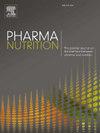Aloe vera and its byproducts as sources of valuable bioactive compounds: Extraction, biological activities, and applications in various food industries
IF 2.4
Q3 NUTRITION & DIETETICS
引用次数: 0
Abstract
Aloe vera (AV) is a succulent plant renowned for its medicinal properties, containing numerous bioactive compounds that offer significant health benefits. Aligning with the United Nations Sustainable Development Goals, particularly Goal 12 on Responsible Consumption and Production, utilizing AV and its byproducts in the food industry can promote sustainability by reducing waste and maximizing resource efficiency. This review provides an in-depth analysis of AV and its byproducts as sources of functional compounds for the food industry. It focuses on various extraction methods for isolating bioactive compounds. The biological activities of these compounds, such as antioxidant, antimicrobial, anti-inflammatory, and gut microbiome properties, were discussed to highlight their potetial health benefits. Additionally, the review explores the diverse applications of AV and its byproducts in the food industry, including their use as natural preservatives, functional ingredients, and nutraceuticals. Effective extraction techniques preserve the functional properties of isolated compounds, which exhibit a wide range of biological activities. Ultimately, AV and its byproducts can enhance the nutritional profiles of food products and contribute to the development of health-promoting formulations. By harnessing these benefits, the food industry can create innovative products that align with sustainable practices while improving consumer health.
芦荟及其副产品作为有价值的生物活性化合物的来源:提取、生物活性和在各种食品工业中的应用
芦荟(AV)是一种多肉植物,以其药用特性而闻名,含有许多生物活性化合物,对健康有益。根据联合国可持续发展目标,特别是关于负责任消费和生产的目标12,在食品工业中利用AV及其副产品可以通过减少浪费和最大限度地提高资源效率来促进可持续性。本文对AV及其副产品作为食品工业功能性化合物的来源进行了深入分析。重点介绍了分离生物活性化合物的各种提取方法。讨论了这些化合物的生物活性,如抗氧化、抗菌、抗炎和肠道微生物特性,以突出其潜在的健康益处。此外,本文还探讨了AV及其副产品在食品工业中的各种应用,包括它们作为天然防腐剂、功能性成分和营养保健品的用途。有效的提取技术保留了分离化合物的功能特性,这些化合物具有广泛的生物活性。最终,AV及其副产品可以提高食品的营养成分,促进健康配方的发展。通过利用这些好处,食品工业可以创造出符合可持续实践的创新产品,同时改善消费者健康。
本文章由计算机程序翻译,如有差异,请以英文原文为准。
求助全文
约1分钟内获得全文
求助全文
来源期刊

PharmaNutrition
Agricultural and Biological Sciences-Food Science
CiteScore
5.70
自引率
3.10%
发文量
33
审稿时长
12 days
 求助内容:
求助内容: 应助结果提醒方式:
应助结果提醒方式:


